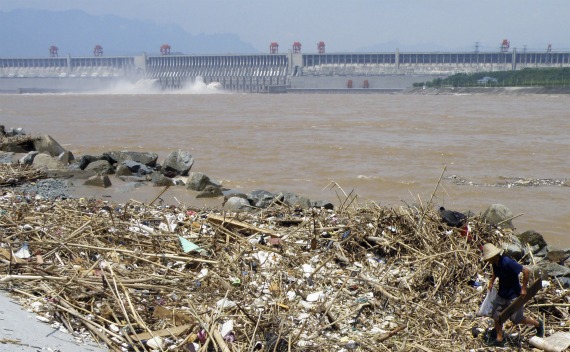The Truth about the Three Gorges Dam
May 24, 2011 9:58 am (EST)
- Post
- Blog posts represent the views of CFR fellows and staff and not those of CFR, which takes no institutional positions.
More on:

It has only taken ninety years, but China’s leaders have finally admitted that the Three Gorges Dam is a disaster. With Wen Jiabao at the helm, the State Council noted last week that there were “urgent problems” concerning the relocation effort, the environment and disaster prevention that would now require an infusion of US$23 billion on top of the $45 billion spent already.
Despite high-level support for the project since Sun Yat-sen first proposed it in 1919, the dam has had serious critics within China all along. One of China’s earliest and most renowned environmental activists, Dai Qing, published the book Yangtze! Yangtze! in 1989, which explored the engineering and social costs of the proposed dam. The book was a hit among Tiananmen Square protestors, and Dai spent a year in prison for her truth-telling. In 1992, when the dam came up for a vote in the National People’s Congress, an unprecedented one-third of the delegates voted against the plan.
Once the construction began in 1994, the problems mounted. The forced relocation of 1.4 million Chinese was plagued with corruption; former Premier Zhu Rongji accused the construction companies of shoddy engineering, and little of the pollution control measures that were planned were actually taken. Water pollution skyrocketed in the reservoir. As Chinese officials acknowledged a few years back, “The Three Gorges Dam project has caused an array of ecological ills, including more frequent landslides and pollution, and if preventive measures are not taken, there could be an environmental catastrophe.”
It would be easy to argue that the State Council’s admission was too little too late. However, the new transparency matters for at least two reasons. First, it plays into the hands of environmentalists who have been arguing against Beijing’s aggressive plans for additional large-scale hydropower plants. Premier Wen, who has tried to slow the approval process for dams over the past several years, now has a bit more ammunition. Second, any acknowledgement by the Party that mistakes have been made is an important step toward the public’s right to question future policies. Let’s hope that more such transparency is on the way.
More on:
 Online Store
Online Store